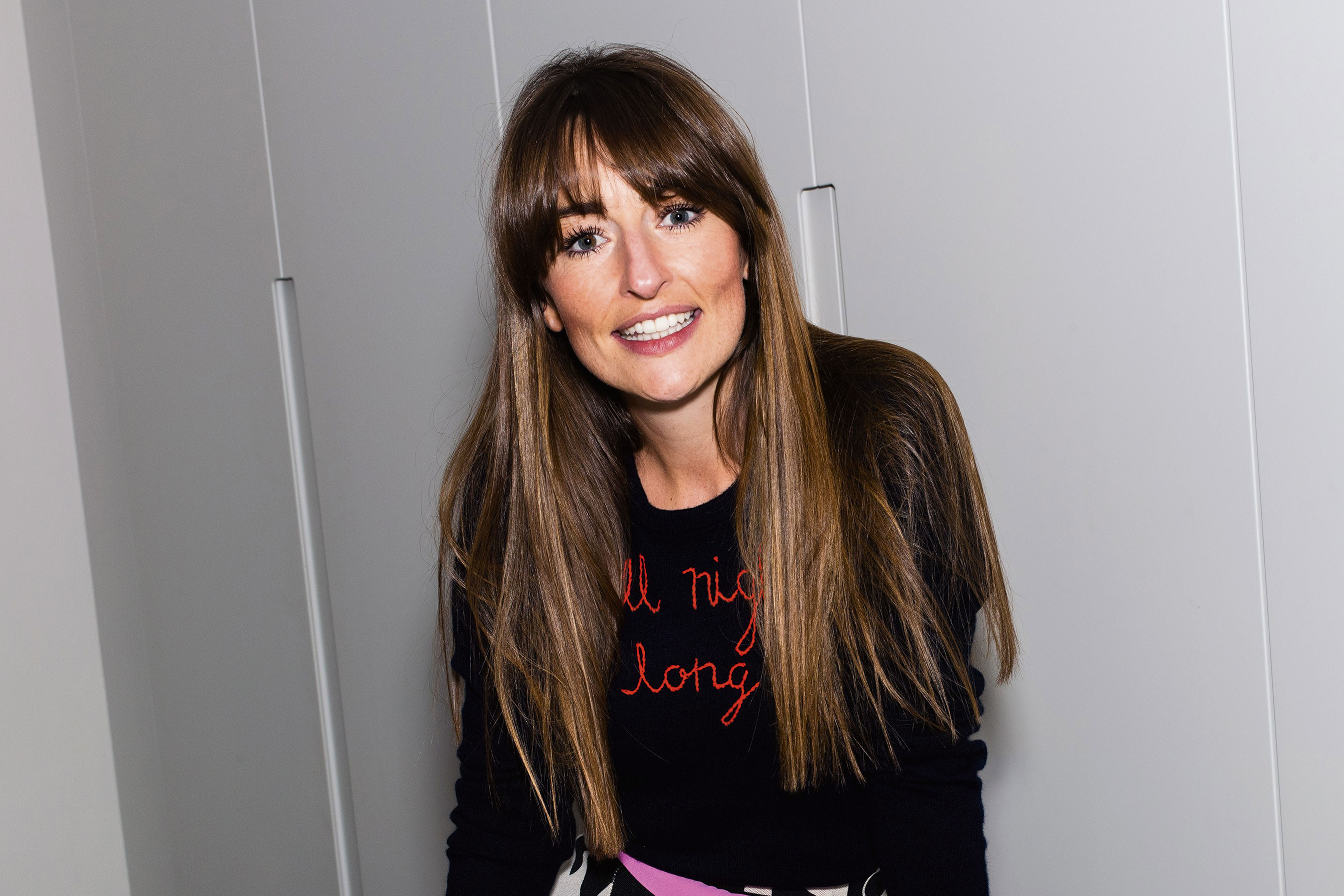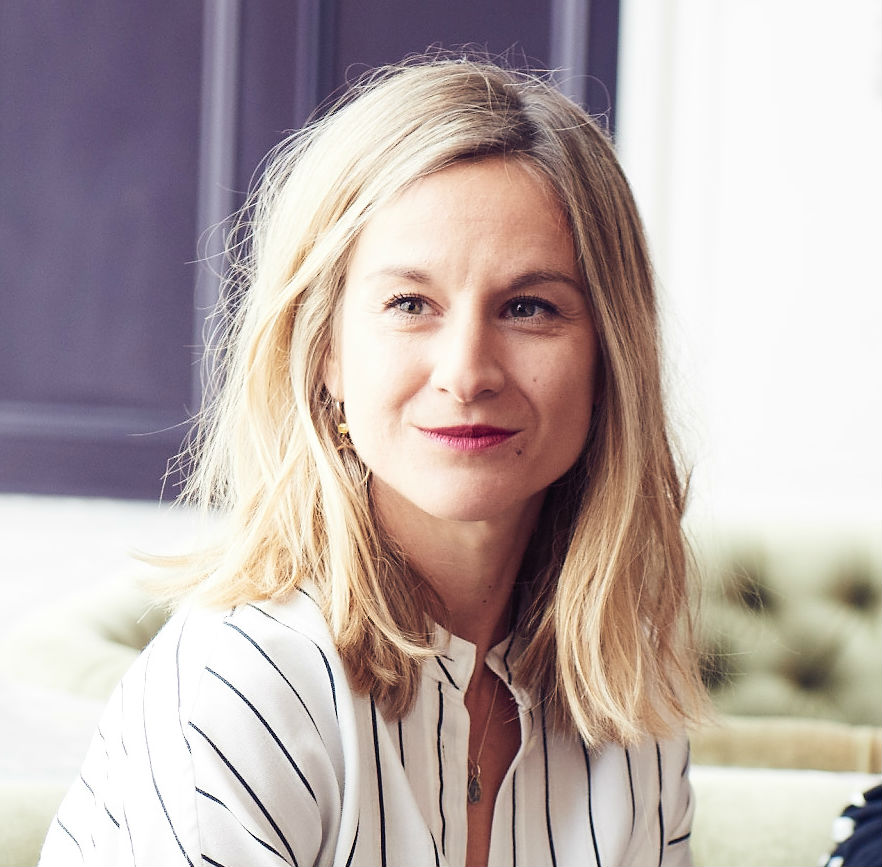Career skills you should adopt right now to keep up in the workplace
For a new generation of women, job roles are transient and flexibility is key. Here are the career skills you need to stay ahead in an ever-evolving workplace


Celebrity news, beauty, fashion advice, and fascinating features, delivered straight to your inbox!
You are now subscribed
Your newsletter sign-up was successful
For a new generation of women, job roles are transient and flexibility is key. Here are the career skills you need to stay ahead in an ever-evolving workplace
It’s 2019 and the robots are not just coming, they’re already here, replacing everyone from your pharmacist, to your lawyer, to the person who scans your groceries, drives your car and books your holiday. In short, they’re replacing you.
This kind of quasi-sci-fi scaremongering has led to a third of young people admitting they are fearful of the future, with 78 per cent of 18-24-year-olds seeking support to build their resilience at work.* But experts are quick to reassure. ‘The robots will only take over if we switch off our human side,’ says Laura Thomson, founder of Phenomenal Training (tag line: maximising human potential in the machine age). ‘As our jobs become increasingly automated, we need to shift our attitude to stay motivated and not become an endangered species in our chosen profession.’
So what is the key to survival? Upskilling. ‘Chances are your final job title before retirement hasn’t been invented yet, and your first job may already be extinct,’ adds Thomson. ‘So instead of aiming for a specific future job title or role, focus on developing a broad set of skills that will future-proof you.’
Now the average length of stay in a job is four-and-a-half years, what was once considered ‘job hopping’ is now the norm. For a generation of career nomads, the ability to keep learning, moving and reassessing is key. ‘As we head towards 2020, the interview question is less likely to be “why did you leave that role?” and more likely to be “why did you stay after that project was completed?” as potential employers size up our adaptability,’ says Thomson.

The trick is also to nurture your three human skills – emotional intelligence (maturely navigating yours and others’ feelings), personal resilience (taking care of yourself so you can handle life’s challenges) and mental presence (intuition and confident decision-making). ‘Technology should complement, not compete, to help us develop the four Cs – being caring, collaborative, creative and curious – and ensure your future value,’ adds Thomson.
Another secret to staying relevant is to identify your USP and promote it. ‘There’s nothing original any more, so it’s more important to be fresh,’ says Tiffany Dufu, chief leadership officer at Levo, a network for professional millennials, and author of Drop The Ball: Achieving More By Doing Less. ‘Don’t underestimate the value of your story, your experiences. It is your unique perspective on the world that will make you stand out.’ Dufu recommends two techniques for identifying this. Firstly, imagine people eulogising you at your funeral (stay with us here). What would you want them to say about you? This can help shift your perspective out of the minutiae of daily life and focus on the bigger picture. Secondly, choose six people in your life who know you in a different context or knew you at different life stages, and ask them, “When have you seen me at my best?” This will help you identify the skills that make you different.’
Celebrity news, beauty, fashion advice, and fascinating features, delivered straight to your inbox!
It has also never been easier to become an overnight expert or plug your skills gap. ‘Don’t wait for an employer to skill you up. It’s not their responsibility to advance your career, so you need to take ownership,’ says Kathryn Minshew, co-founder of TheMuse.com, a career platform helping more than 50 million professionals find inspiring careers at innovative companies, and co-author of The New Rules Of Work. ‘You can find courses online, take evening classes in something you’re passionate about or do micro-training in your lunch hour via a webinar or podcast.’
Job-hopping and portfolio careers aren’t for everyone. ‘Often the easiest time and place to upskill is when you are already in a job,’ says Fiona Rice, executive coach and founder of Rice Consultancy. ‘Employers offer so many different kinds of training and development to improve hard and soft skills. Have a clear proposal for your boss and think creatively about how your training will benefit the business and team.’
The future is here, people. Time to embrace it.
Career skills of successful women
'I bounced back from being fired... twice'
Sarah Robb O’Hagan, 44, is a former president of Gatorade and Equinox, and was named one of Forbes’ Most Powerful Women in Sports. She’s a business coach and author of Extreme You.

- Being yourself is the best thing you can be. As women, we’ve been conditioned to present ourselves as strong and capable. Showing your vulnerability indicates that you’re willing to learn.
- Just because you’re the boss, doesn’t mean you know everything. I failed accounting at university so I convinced myself I sucked at it. But when I became an executive at companies such as Virgin and Nike, I couldn’t ignore my weaknesses. I took a course in financial planning to plug my skills-gap and it became my favourite aspect of the job.
- There’s nothing like humiliation to force you into self-reflection. I was fired twice in my twenties and I believe those failures made me work harder in my next jobs, to listen more and learn from others. I got overconfident and it backfired.
- You have to care about the work you’re doing. When I took a job at Atari, I completely overlooked the fact that I can’t stand video games. Look for an environment where you can shine from your strengths and understand your market.
- Passion is made, not found. People get to where they are – the Olympic skier, Apple’s Angela Ahrendts, Hillary Clinton – because they’re passionate. Stop worrying about what your life looks like on Facebook and listen to how you feel about your career progress.
‘I became a micro-expert’
Amy Zima, 28, is product manager on TweetDeck, a social monitoring platform for Twitter users

- Listening is essential for growth. Last year, we implemented for Twitter to switch the star (that appeared if you favourited a tweet) to a heart based on user feedback. Responding to customers’ needs is crucial.
- Micro-skilling is the new buzzword. I used to work in retail selling snowboards, so I had to know the technical details of each board. The ability to become a micro-expert in how something works is a skill I still use. I don’t need to write code or be a developer, but it helps that I understand how those things work.
- Ask questions without being afraid of looking stupid. That is essential for self-development. I ask questions every day. I’m sceptical of those people who think they know it all already.
- Everybody loves a good story. Taking complex information and delivering it in a concise, appealing way is important in my job. Rather than spewing out what’s in my head, I wrap it up in a story that captures people’s attention.
- Unplug in the evenings. It helps define the line between work and play. I do pottery to decompress and get headspace before starting afresh the next day.
‘I didn’t take no for an answer’
Michelle Kennedy, 34, is the co-founder of new app Peanut, a social network for mums

- I am often the token woman at tech events. But things are improving. When I first started out I was told that investors would never touch an app aimed at mothers, but I ended up in a bidding war for Peanut.
- Your immediate reaction is not always the correct one. If I have a difficult email to write, I draft it, then take a breather and come back to it. I also seek advice – most of the successful women I know have a mentor whose opinion they rate.
- Nothing is impossible. Yes, it’s 2am and your friends are just getting in from a club and you’re still working, but hard work pays off. Even when things don’t go to plan, I keep plugging away.
- Kindness doesn’t have to mean soft. It can simply mean understanding that the person you’re dealing with at work may have external factors affecting their behaviour so be mindful of that.
- Embrace change. I started out as a lawyer and on the surface it’s different to the tech world, but my legal skills come in handy when I have to draft agreements for the company.
‘I pulled myself back from the brink’
Sadia Sisay, 47, is the founder of beingU, a lingerie start-up that tackles diversity in fashion

- Every woman should feel visible. My business idea came about when I took my 14-year-old daughter to buy a bra in a department store and we were handed a pink ‘nude’ bra. Nothing else came close to her skin tone, so I decided to create lingerie in every shade and size (up to 38G).
- I almost lost myself to grief. My husband died suddenly at the gym with an undetected heart problem. It was the day before I had planned to launch my business and it left me unable to get out of bed most mornings. Counselling pulled me through. I didn’t want my daughter to lose another parent, so I gave myself a telling off and got down to business.
- My experience as a cancer nurse was invaluable. I used to be in charge of a ward full of students, doctors, families and sick patients having chemotherapy, which involves good communication and project management. I use those skills now in dealing with importers, budgets and schedules.
- I thought I could do everything myself, but I burnt out. It’s important to know when to let go. Don’t micromanage. If you don’t know something, find somebody else who does. Delegation is key.
- Swap business manuals for cookbooks! In Sierra Leone, where I was born, you don’t serve guests a cup of tea, you serve food. I’ve cooked my signature cassava leaves for many clients. Cooking is like yoga to me – it clears my mind.
*According to AXA PPP Healthcare
